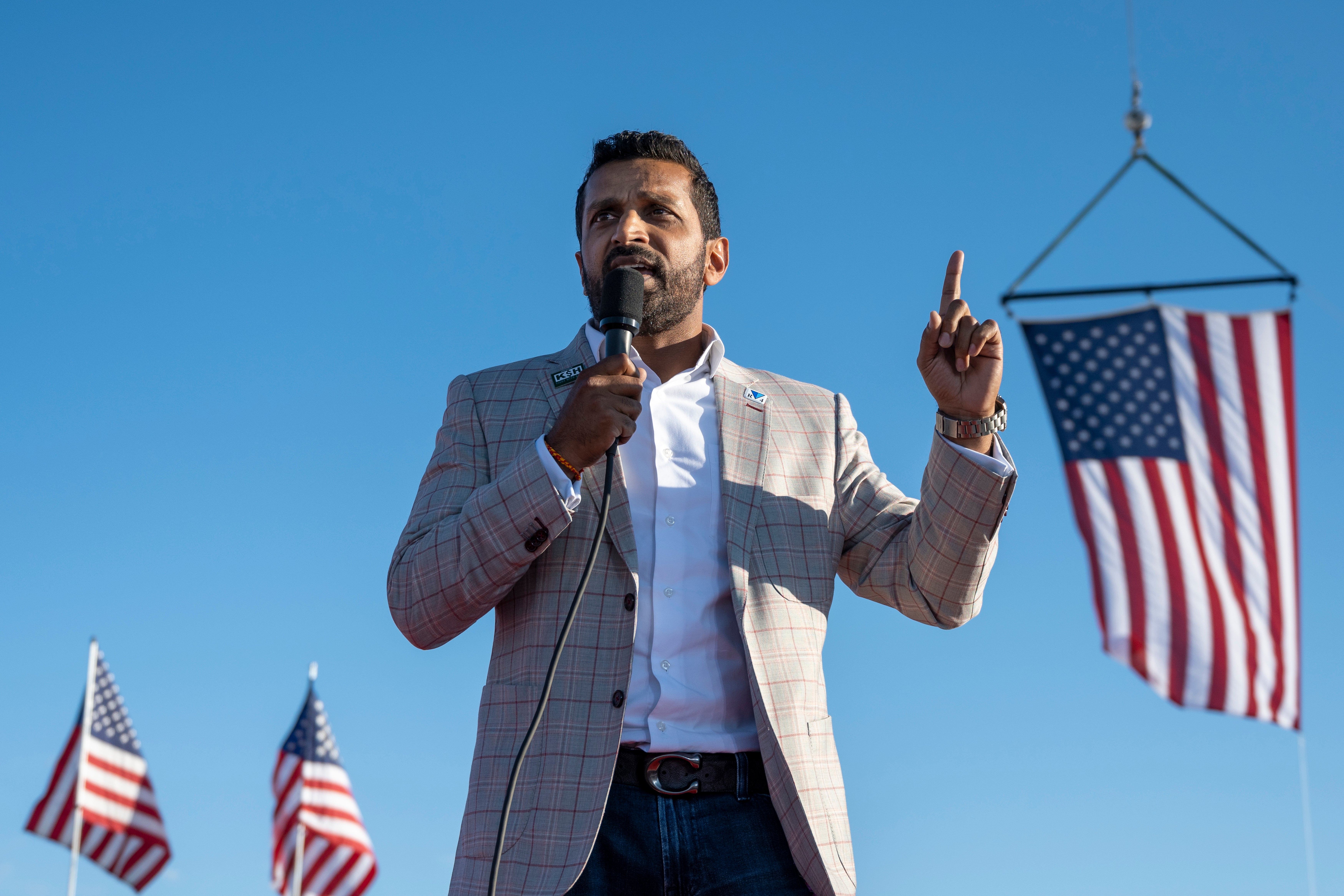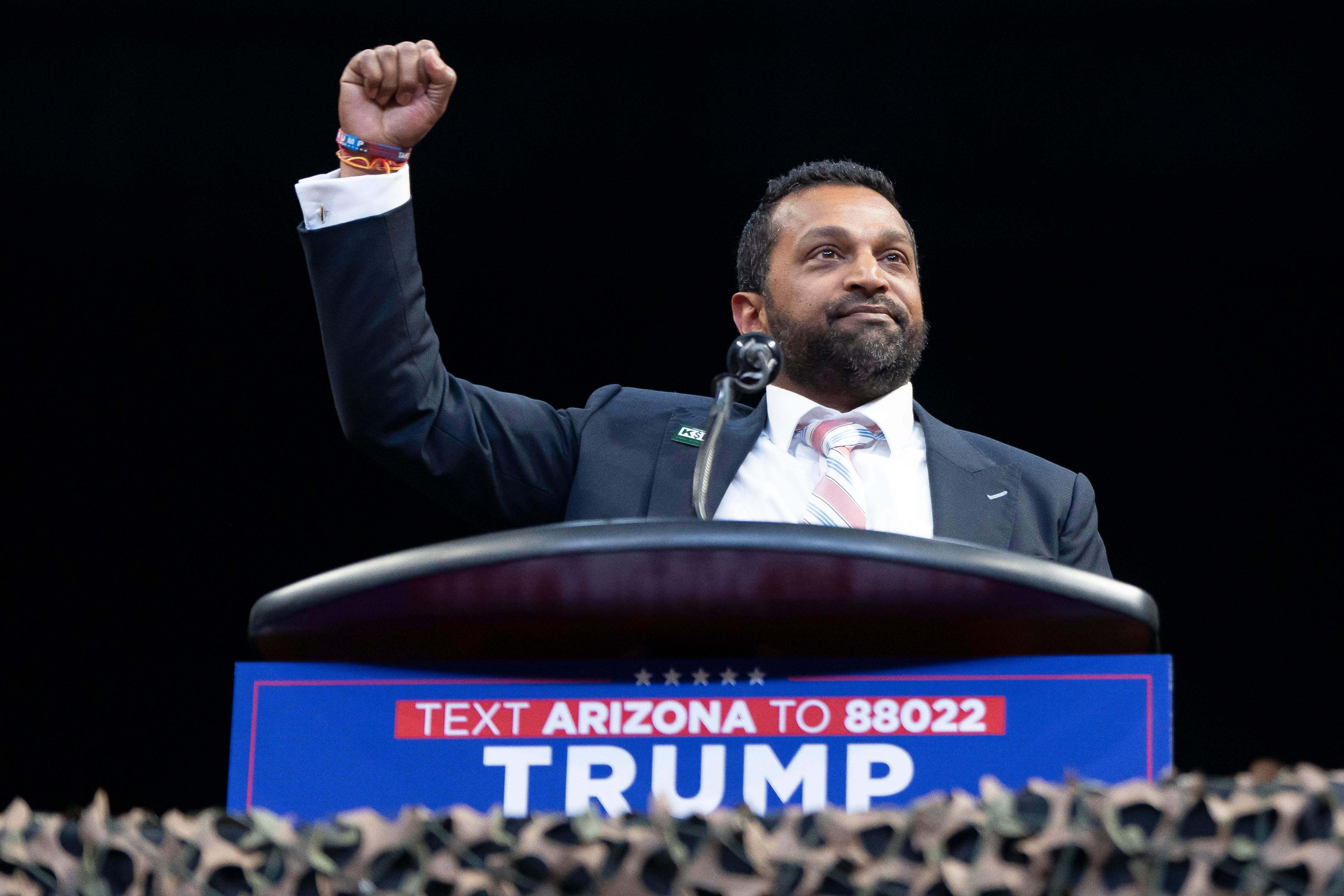Will Donald Trump use Kash Patel to attack his critics and the First Amendment?
Limitations of US law shield most journalists, but long-term use of the Espionage Act to prosecute leakers provides Trump an alleyway to attack critics. Reporter John Bowden provides analysis about what Patel’s nomination could mean for the First Amendement
Your support helps us to tell the story
From reproductive rights to climate change to Big Tech, The Independent is on the ground when the story is developing. Whether it's investigating the financials of Elon Musk's pro-Trump PAC or producing our latest documentary, 'The A Word', which shines a light on the American women fighting for reproductive rights, we know how important it is to parse out the facts from the messaging.
At such a critical moment in US history, we need reporters on the ground. Your donation allows us to keep sending journalists to speak to both sides of the story.
The Independent is trusted by Americans across the entire political spectrum. And unlike many other quality news outlets, we choose not to lock Americans out of our reporting and analysis with paywalls. We believe quality journalism should be available to everyone, paid for by those who can afford it.
Your support makes all the difference.The nomination of Kash Patel to serve as America’s next FBI director is a warning shot across the bow for journalists — as Donald Trump’s threats to attack the First Amendement intensifies.
Patel, a longtime Trump loyalist, served in the previous administration in a political appointment at the Pentagon. Now, he’ll be in charge of the nation’s largest law enforcement agency, pending approval by the Senate.
His nomination, coupled with president-elect Trump’s clear desire for a similar close ally at the head of the Justice Department, is a sign that the incoming president wants those agencies firmly in his pocket. And Patel has largely laid out his vision for what that will look like.
“We’re going to come after the people in the media who lied about American citizens who helped Joe Biden rig presidential elections. “We’re going to come after you, whether it’s criminally or civilly,” he said on an episode of Steve Bannon’s War Room podcast.
He expanded on the threat, using very similar language, in an interview with the Washington Examiner.
“What the president has stated simply, whether it’s DOJ, FBI, DOD — we’re just going to stop the politicization of law enforcement, intelligence,” he said.
“It’s simple. If they broke the law, you prosecute them, criminally or civilly,” he added. “If they broke the law, use the Constitution, that’s it.”

The implicit threat also may have tipped Patel’s hand: the admission that civil law may come into play is as clear as a sign that even Trump’s closest loyalists understand the limitations of criminal statutes.
For all the president-elect’s bluster on the campaign trail and the vows of Bannon and his circle to come after the media, there is little in terms of criminal prosecution with which the DOJ or FBI can threaten journalists who report on the Trump administration — either past or present.
Neither the FBI nor the DOJ actually has the power to make up new statutes with which to criminally charge journalists, and the vast majority of published media works in the US fall under the First Amendment’s protected speech and debate clause.
The best Trumpworld and its fans on social media will be able to hope for, in this regard, will be civil suits filed against major media organizations, but the incoming president has no track record of success on that front even after promising virtually the same thing during the 2016 campaign.
The DOK was previously utilized by Trump ally-turned-inconvenience Bill Barr to defend the commander-in-chief from a defamation suit during his first presidency. Despite Barr’s efforts to pit the resources of the federal government against E Jean Carroll, the author who accused Trump of sexual abuse and defamation for supposedly lying about it, Carroll prevailed in the end.
One real red flag is raised for journalists in the national security field in particular with Patel’s nomination, however. His appointment would likely mean the FBI would eagerly prosecute journalists who publish classified documents or other documents obtained from government whistleblowers, a somewhat ironic outcome given Trumpworld’s support for Julian Assange and Wikileaks’ role in exposing leaked documents stolen from the servers of the Democratic Party in 2016.
That support aside, it was Barr in 2019 who led the DOJ in prosecuting Assange after the Obama administration declined to do so, citing press freedom concerns.

Most experts agree that this is the most likely avenue for Trump’s team to take if they are truly serious about coming after the press. The reason? A decades-long failure by the Washington class to address press freedom concerns surrounding the Espionage Act, which was first used by the Obama administration to aggressively pursue leakers despite those efforts having been criticized at the time as having a chilling effect on journalism (and perhaps being unconstitutional, too) by First Amendment groups.
“It would be the most likely statute under which charges would be brought for a direct prosecution,” David McGraw, general counsel for The New York Times, told the Columbia Journalism Review in the leadup to Trump’s election victory this year.
Journalist and author Kyle Paoletta added in a separate piece for CJR: “For all the danger that Trump represents to the media, the uncomfortable truth is that the risks journalists now face were created by widespread inattention to the gradual encroachment on press freedom that the Espionage Act made possible over the past century.”
Importantly, no journalists were prosecuted under Trump’s first term in office, with the exception of Assange. The last time a reporter was jailed by the federal government for refusing to reveal a classified source was during the George W. Bush administration.
Unless the law changes, that’s likely to be the same reality under four years of Trump 2.0. The people in real danger for prosecution will be, as it was from 2017-2021, the various federal employees of different agencies who leak unauthorized documents and materials to the press — the FBI and DOJ were laserlike in their focus on prosecuting leakers as the president was confronted with officials in many agencies alarmed and worried about his team’s policies and directives.
There’s also the constitutional question of whether journalists even could be prosecuted under the Espionage Act, the law governing classified information which Bannon and his allies have long argued is the right’s best course of action for silencing the media.
While the Supreme Court is now firmly conservative, it is not wholly deferential to the incoming president. A battle over that would likely be escalated to the nation’s highest court, which has consistently bucked Trump on his more outlandish legal pushes.

Join our commenting forum
Join thought-provoking conversations, follow other Independent readers and see their replies
Comments